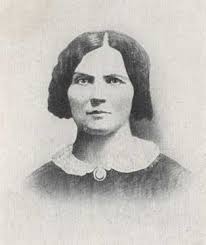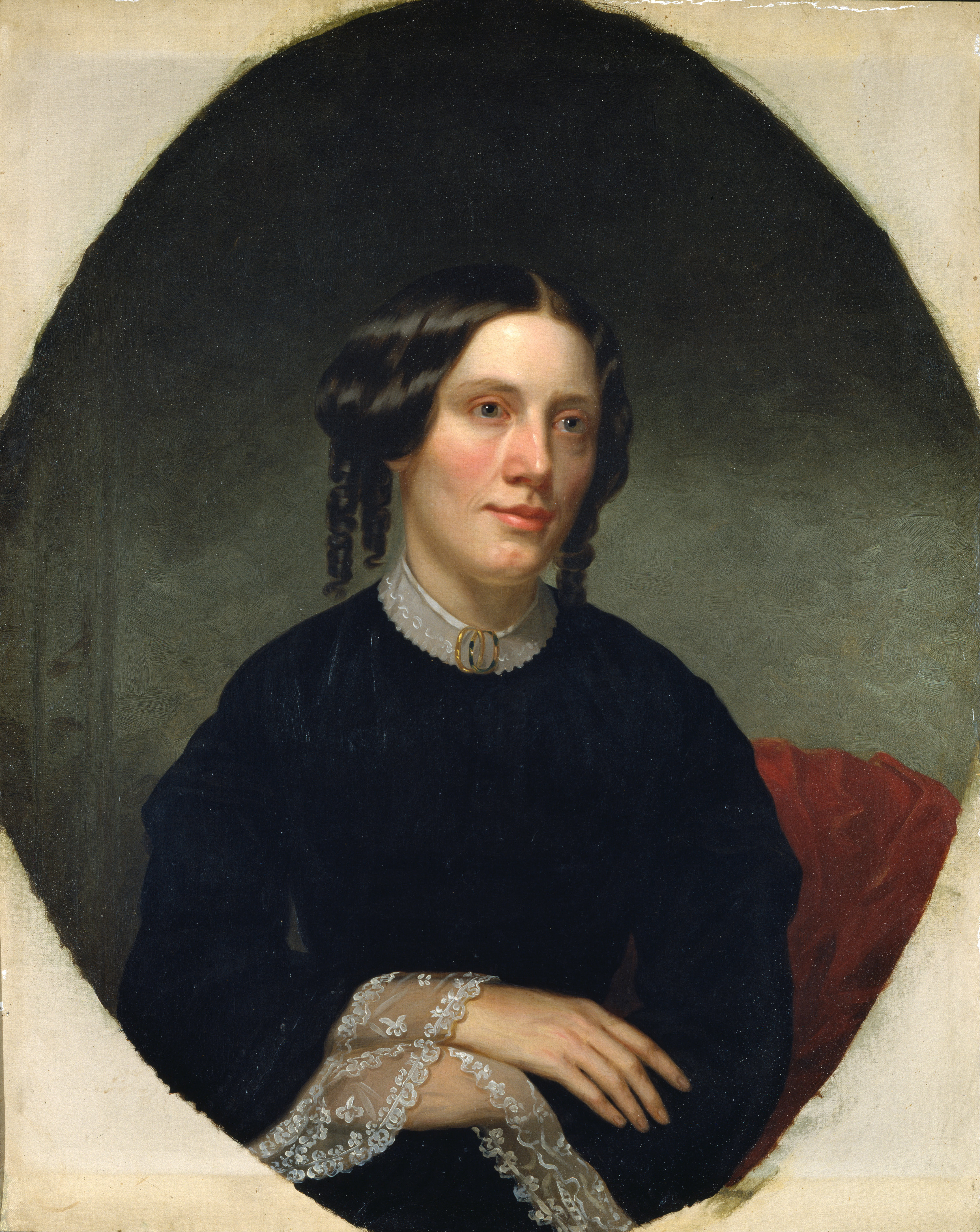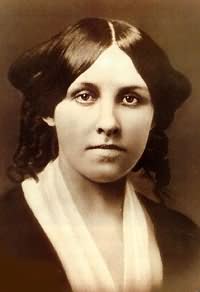|
Sarah Hopkins Bradford
Sarah Hopkins Bradford (August 20, 1818 – June 25, 1912) was an American literature, American writer and historian, best known today for her two pioneering biographical books on Harriet Tubman. Most of her work consists of children's literature. Biography Early life and family Sarah Elizabeth Hopkins was born on August 20, 1818, in Mount Morris (town), New York, Mount Morris, New York. She was the youngest of seven children of the Hon. Samuel Miles Hopkins (1772–1837) and Sarah Elizabeth Rogers (1778–1866). Her father was a Yale University graduate, attorney at law, attorney and judge, who served as a Federalist Party congressman (1813–1815), New York State Assemblyman (1820–1821), and New York State Senate member (1822). On May 15, 1839, she married prominent Albany, New York attorney (later judge) John Melancthon Bradford, Jr. (1813–1860). The couple had six children: Charles, William, Mary, John, Elizabeth and Louisa. Their two eldest sons were killed in the Ameri ... [...More Info...] [...Related Items...] OR: [Wikipedia] [Google] [Baidu] |
Geneva, New York
Geneva is a City (New York), city in Ontario County, New York, Ontario and Seneca County, New York, Seneca counties in the U.S. state of New York (state), New York. It is at the northern end of Seneca Lake (New York), Seneca Lake; all land portions of the city are within Ontario County; the water portions are in Seneca County. The population was 13,261 at the 2010 census. The city is supposedly named after the city and canton of Geneva in Switzerland. The main settlement of the Seneca was spelled Zoneshio by early white settlers, and was described as being two miles north of Seneca Lake. The city borders, and was once part of, the town of Geneva (town), New York, Geneva. The city identifies as the "Lake Trout Capital of the World." History The area was long occupied by the Seneca tribe, which had established a major village of ''Kanadaseaga'' here by 1687. The British helped fortify the village against the French of Canada during the Seven Years' War (locally known as the Fr ... [...More Info...] [...Related Items...] OR: [Wikipedia] [Google] [Baidu] |
19th-century American Women Writers
The 19th (nineteenth) century began on 1 January 1801 ( MDCCCI), and ended on 31 December 1900 ( MCM). The 19th century was the ninth century of the 2nd millennium. The 19th century was characterized by vast social upheaval. Slavery was abolished in much of Europe and the Americas. The First Industrial Revolution, though it began in the late 18th century, expanding beyond its British homeland for the first time during this century, particularly remaking the economies and societies of the Low Countries, the Rhineland, Northern Italy, and the Northeastern United States. A few decades later, the Second Industrial Revolution led to ever more massive urbanization and much higher levels of productivity, profit, and prosperity, a pattern that continued into the 20th century. The Islamic gunpowder empires fell into decline and European imperialism brought much of South Asia, Southeast Asia, and almost all of Africa under colonial rule. It was also marked by the collapse of the la ... [...More Info...] [...Related Items...] OR: [Wikipedia] [Google] [Baidu] |
American Women Poets
American(s) may refer to: * American, something of, from, or related to the United States of America, commonly known as the "United States" or "America" ** Americans, citizens and nationals of the United States of America ** American ancestry, people who self-identify their ancestry as "American" ** American English, the set of varieties of the English language native to the United States ** Native Americans in the United States Native Americans, also known as American Indians, First Americans, Indigenous Americans, and other terms, are the Indigenous peoples of the mainland United States ( Indigenous peoples of Hawaii, Alaska and territories of the United State ..., indigenous peoples of the United States * American, something of, from, or related to the Americas, also known as "America" ** Indigenous peoples of the Americas * American (word), for analysis and history of the meanings in various contexts Organizations * American Airlines, U.S.-based airline headquar ... [...More Info...] [...Related Items...] OR: [Wikipedia] [Google] [Baidu] |
American Children's Writers
American(s) may refer to: * American, something of, from, or related to the United States of America, commonly known as the "United States" or "America" ** Americans, citizens and nationals of the United States of America ** American ancestry, people who self-identify their ancestry as "American" ** American English, the set of varieties of the English language native to the United States ** Native Americans in the United States, indigenous peoples of the United States * American, something of, from, or related to the Americas, also known as "America" ** Indigenous peoples of the Americas * American (word), for analysis and history of the meanings in various contexts Organizations * American Airlines, U.S.-based airline headquartered in Fort Worth, Texas * American Athletic Conference, an American college athletic conference * American Recordings (record label), a record label previously known as Def American * American University, in Washington, D.C. Sports teams Soccer * B ... [...More Info...] [...Related Items...] OR: [Wikipedia] [Google] [Baidu] |
1912 Deaths
Year 191 ( CXCI) was a common year starting on Friday (link will display the full calendar) of the Julian calendar. At the time, it was known as the Year of the Consulship of Apronianus and Bradua (or, less frequently, year 944 ''Ab urbe condita''). The denomination 191 for this year has been used since the early medieval period, when the Anno Domini calendar era became the prevalent method in Europe for naming years. Events By place Parthia * King Vologases IV of Parthia dies after a 44-year reign, and is succeeded by his son Vologases V. China * A coalition of Chinese warlords from the east of Hangu Pass launches a punitive campaign against the warlord Dong Zhuo, who seized control of the central government in 189, and held the figurehead Emperor Xian hostage. After suffering some defeats against the coalition forces, Dong Zhuo forcefully relocates the imperial capital from Luoyang to Chang'an. Before leaving, Dong Zhuo orders his troops to loot the tombs of the H ... [...More Info...] [...Related Items...] OR: [Wikipedia] [Google] [Baidu] |
1818 Births
Events January–March * January 1 ** Battle of Koregaon: Troops of the British East India Company score a decisive victory over the Maratha Empire. ** Mary Shelley's ''Frankenstein'' is published anonymously in London. * January 2 – The British Institution of Civil Engineers is founded. * January 3 (21:52 UTC) – Venus occults Jupiter. It is the last occultation of one planet by another before November 22, 2065. * January 6 – The Treaty of Mandeswar brings an end to the Third Anglo-Maratha War, ending the dominance of Marathas, and enhancing the power of the British East India Company, which controls territory occupied by 180 million Indians. * January 11 – Percy Bysshe Shelley's ''Ozymandias'' is published pseudonymously in London. * January 12 – The Dandy horse (''Laufmaschine'' bicycle) is invented by Karl Drais in Mannheim. * February 3 – Jeremiah Chubb is granted a British patent for the Chubb detector lock. * February 5 – Upon his death, K ... [...More Info...] [...Related Items...] OR: [Wikipedia] [Google] [Baidu] |
Auburn, New York
Auburn is a city in Cayuga County, New York, United States. Located at the north end of Owasco Lake, one of the Finger Lakes in Central New York, the city had a population of 26,866 at the 2020 census. It is the largest city of Cayuga County, the county seat, and the site of the maximum-security Auburn Correctional Facility, as well as the William H. Seward House Museum and the house of abolitionist Harriet Tubman. History The region around Auburn had been Haudenosaunee territory for centuries before European contact and historical records. Auburn was founded in 1793, during the post-Revolutionary period of settlement of western New York. The founder, John L. Hardenbergh, was a veteran of the Sullivan-Clinton campaign against the Iroquois during the American Revolution. Hardenbergh settled in the vicinity of the Owasco River with his infant daughter and two African-American indentured servants, Harry and Kate Freeman. After his death in 1806, Hardenbergh was buried in Aub ... [...More Info...] [...Related Items...] OR: [Wikipedia] [Google] [Baidu] |
Philadelphia
Philadelphia, often called Philly, is the largest city in the Commonwealth of Pennsylvania, the sixth-largest city in the U.S., the second-largest city in both the Northeast megalopolis and Mid-Atlantic regions after New York City. Since 1854, the city has been coextensive with Philadelphia County, the most populous county in Pennsylvania and the urban core of the Delaware Valley, the nation's seventh-largest and one of world's largest metropolitan regions, with 6.245 million residents . The city's population at the 2020 census was 1,603,797, and over 56 million people live within of Philadelphia. Philadelphia was founded in 1682 by William Penn, an English Quaker. The city served as capital of the Pennsylvania Colony during the British colonial era and went on to play a historic and vital role as the central meeting place for the nation's founding fathers whose plans and actions in Philadelphia ultimately inspired the American Revolution and the nation's inde ... [...More Info...] [...Related Items...] OR: [Wikipedia] [Google] [Baidu] |
Uncle Tom's Cabin
''Uncle Tom's Cabin; or, Life Among the Lowly'' is an anti-slavery novel by American author Harriet Beecher Stowe. Published in two volumes in 1852, the novel had a profound effect on attitudes toward African Americans and slavery in the U.S., and is said to have "helped lay the groundwork for the mericanCivil War". Stowe, a Connecticut-born woman of English descent, was part of the religious Beecher family and an active abolitionist. She wrote the sentimental novel to depict the reality of slavery while also asserting that Christian love could overcome slavery. The novel focuses on the character of Uncle Tom, a long-suffering black slave around whom the stories of the other characters revolve. In the United States, ''Uncle Tom's Cabin'' was the best-selling novel and the second best-selling book of the 19th century, following the Bible. It is credited with helping fuel the abolitionist cause in the 1850s. The influence attributed to the book was so great that a likely ... [...More Info...] [...Related Items...] OR: [Wikipedia] [Google] [Baidu] |
Harriet Beecher Stowe
Harriet Elisabeth Beecher Stowe (; June 14, 1811 – July 1, 1896) was an American author and abolitionist. She came from the religious Beecher family and became best known for her novel ''Uncle Tom's Cabin'' (1852), which depicts the harsh conditions experienced by enslaved African Americans. The book reached an audience of millions as a novel and play, and became influential in the United States and in Great Britain, energizing anti-slavery forces in the American North, while provoking widespread anger in the South. Stowe wrote 30 books, including novels, three travel memoirs, and collections of articles and letters. She was influential both for her writings and for her public stances and debates on social issues of the day. Life and work Harriet Elisabeth Beecher was born in Litchfield, Connecticut on June 14, 1811.McFarland, Philip. ''Loves of Harriet Beecher Stowe''. New York: Grove Press, 2007: 112. She was the sixth of 11 children born to outspoken Calvinist preache ... [...More Info...] [...Related Items...] OR: [Wikipedia] [Google] [Baidu] |
Louisa May Alcott
Louisa May Alcott (; November 29, 1832March 6, 1888) was an American novelist, short story writer, and poet best known as the author of the novel ''Little Women'' (1868) and its sequels ''Little Men'' (1871) and ''Jo's Boys'' (1886). Raised in New England by her Transcendentalism, transcendentalist parents, Abigail May and Amos Bronson Alcott, she grew up among many well-known intellectuals of the day, such as Ralph Waldo Emerson, Nathaniel Hawthorne, Henry David Thoreau, and Henry Wadsworth Longfellow. Alcott's family suffered from financial difficulties, and while she worked to help support the family from an early age, she also sought an outlet in writing. She began to receive critical success for her writing in the 1860s. Early in her career, she sometimes used pen names such as A. M. Barnard, under which she wrote lurid short stories and sensation novels for adults that focused on passion and revenge. Published in 1868, ''Little Women'' is set in the Alcott family home, Or ... [...More Info...] [...Related Items...] OR: [Wikipedia] [Google] [Baidu] |



.jpg)


